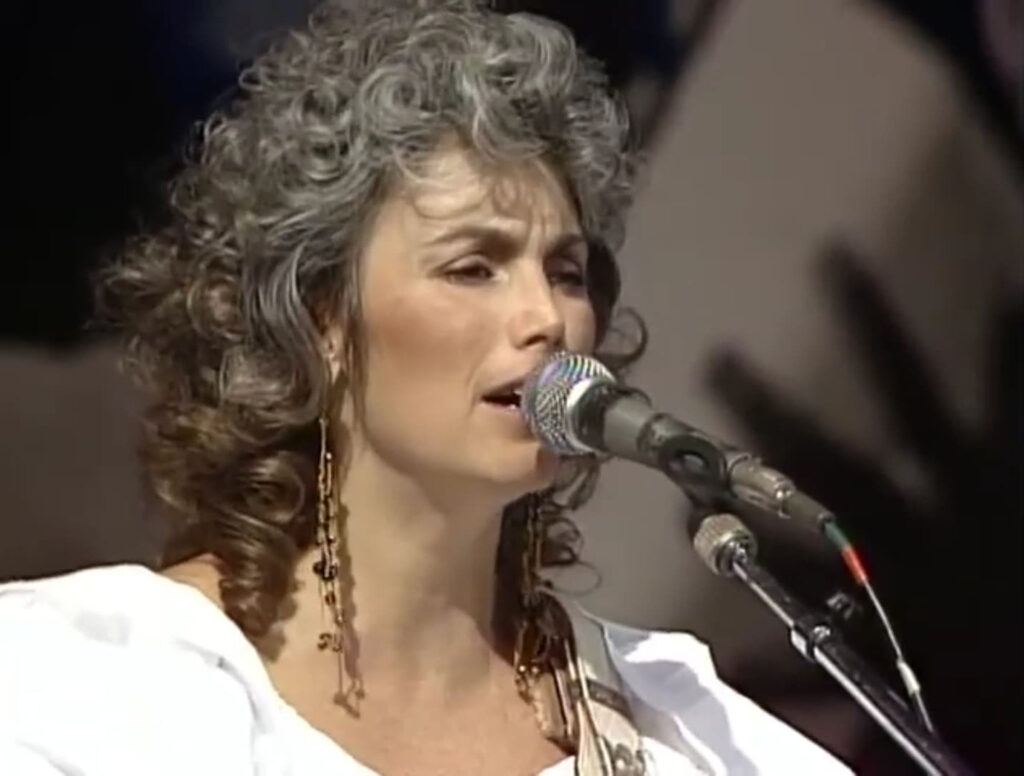
A quiet hymn that rises like a whispered prayer and steadies the soul in its upward gaze.
In 1987, as part of her luminous acoustic gospel collection Angel Band, Emmylou Harris offered one of her most intimate and spiritually resonant performances: “If I Be Lifted Up.” Released on July 7 of that year, the album stood apart within her catalog—not as a commercial statement aimed at charts, but as a deeply personal project recorded live “off the floor,” originally intended as a gift for friends before Warner Bros. Records recognized its quiet power and ushered it into the world. In these sessions, Harris gathered a small circle of close musical companions—Vince Gill, Carl Jackson, Steve Fishell, Mark O’Connor, and producer Emory Gordy Jr.—crafting a sound that felt less like a studio creation and more like a sacred gathering around a single microphone. At this point in her career, Harris had already become a guiding light of the country traditionalist movement, and Angel Band only strengthened that position with its reverent devotion to the roots that shaped American song.
What gives “If I Be Lifted Up” its enduring resonance is not merely its place in a gospel lineage but the way Harris inhabits the lyric—as though the words themselves pass through her like stained-glass light. Traditional in origin, the song has long been associated with the spiritual promise of elevation: the idea that when the human voice reaches upward, something beyond the human responds. Harris does not dramatize that ascent; she traces it with poise, letting the melody rise with the gentle certainty of a prayer spoken from memory. Her vocal delivery is feather-soft yet unwavering, a fusion of humility and conviction that reveals why gospel, in her hands, becomes less a genre than a form of witness.
The acoustic ensemble surrounding her deepens this sense of spiritual nearness. Gill’s harmonies slide in like a warm undertow, Jackson’s string work adds subtle architecture, and O’Connor’s fiddle lines feel like the flicker of candlelight along an old chapel wall. Recorded live, without modern polish or studio armor, the track bears the grain of real presence—musicians leaning in, listening, responding, shaping a moment that cannot be rehearsed into existence. It is this organic intimacy that anchors the album as a whole, and “If I Be Lifted Up” stands at its emotional center: a quiet persuasion, a testament to faith that does not instruct but invites.
Within Harris’s broader legacy, the performance marks a point of deep artistic clarity. She was, by then, a figure whose influence stretched across Nashville, subtly reshaping its understanding of tradition—not by force, but by grace. And in this song, grace becomes audible. It rises, gently, steadily, lifting the listener with it.